I arrived at Glen Nevis during a storm. I’d watched it gather through the window of the train on the scenic West Highland Line from Glasgow. I’d witnessed the tempest scouring Rannoch Moor and by the time we arrived at Fort William it had reached fever pitch. It was a reminder that the Highlands can still do wild when the fancy takes them.
It’s around three miles from Fort William station to the hostel at Glen Nevis, so I zipped everything up tight and marched out of town. As I headed up the River Nevis, the bus from Fort William went splashing past me, but I was happy to be trundling along under my own steam, watching the river shooting along the other way as if in a mad panic to get to the safety of the sea. Soon, mountain peaks began to appear and, as the daylight began to melt into dusk, I saw a large light-coloured timber building ahead.
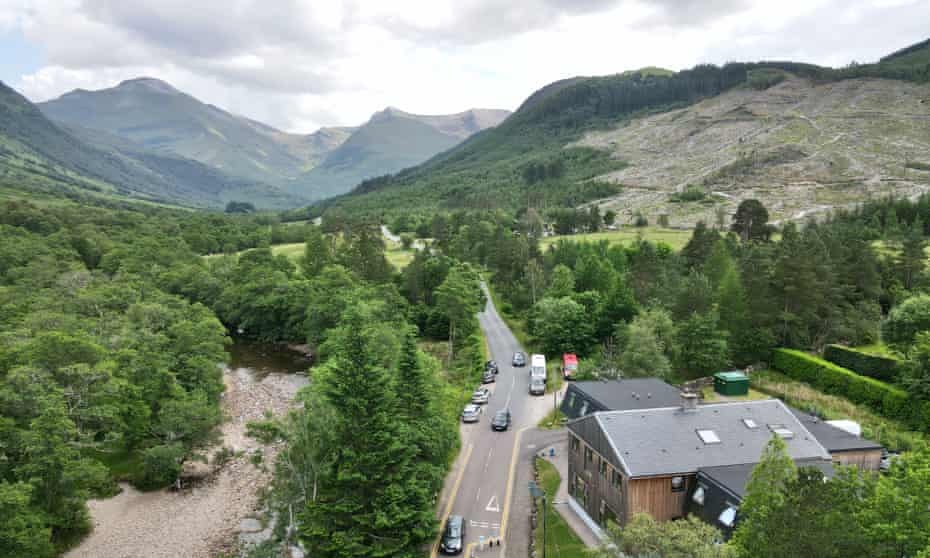
Hostelling Scotland has spent around £2m stripping the somewhat tired hostel at Glen Nevis back to its skeleton and rebuilding it. Reopened in 2018, it is now a throughly 21st-century hostel – airy, bright, comfortable, warm and welcoming after a day on the mountains. I was fortunate enough to visit pre-lockdowns, but Covid rules now mean mandatory masks when moving around public areas, and the self-catering kitchen is closed. The good news is that packed breakfasts are available (and hot and cold drinks and snacks), and the lounge and dining areas and large terrace are open, rearranged to ensure social distancing.
Accommodation is currently offered as 18 private bedrooms (all but one en suite), sleeping up to eight in a mixture of single and bunk beds (and a maximum of four households in a private room). I found mine spacious and unfussy, with wooden lockers that rolled under the beds, and the shower hot and powerful.
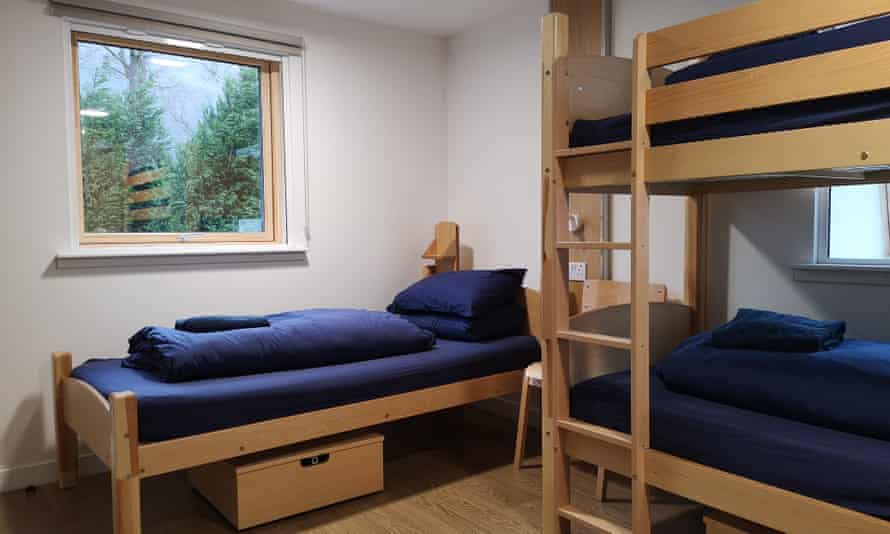
The renovation has proved popular because the hostel was busy. There were clusters of bearded men on sofas planning the following day’s expedition, a family playing a board game, couples sharing a bottle of wine, a studious gentleman reading a book. Stools at long bench tables were made from bicycle parts (there’s an up-cycling joke in there somewhere), and at the heart of everything was a wood-burning stove.
In the morning, I raised the blind on my bedroom window (and the midge screen – useful in summer) and took in the view. Below, the river surged down the glen while Meall an t-Suidhe – a foothill of Ben Nevis – rose into the blanketing cloud above. With poor weather forecast for Britain’s highest mountain, prudence dictated that this was not a day to attempt an assault.
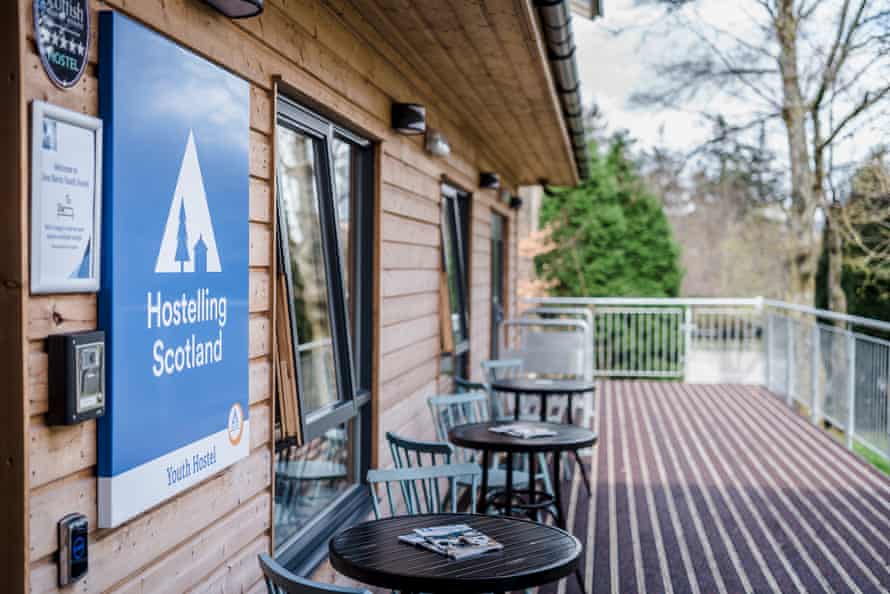
The hostel is close to the start/finish of the West Highland Way and the Great Glen Way, but I chose to head along the old military road to An Steall waterfall, whose 120-metre drop makes it the second-highest in Scotland. When the road eventually withered into nothing, I took the pleasingly gnarly path through the Nevis Gorge, whose rocks glistened with spray from a slew of almost vertical rills.
Reaching the falls at last, I came across holidaymakers Peter, Pippa and their daughter Ruby. Peter was suspended in mid-air. A doughty Yorkshireman, he was trying out the other attraction at An Steall: a high bridge consisting of a tightrope cable and two more to cling to as you inch your perilous way over the Water of Nevis. I had a go myself and, with frisky gusts making the cables sing, it helped me appreciate the benefits of being alive.
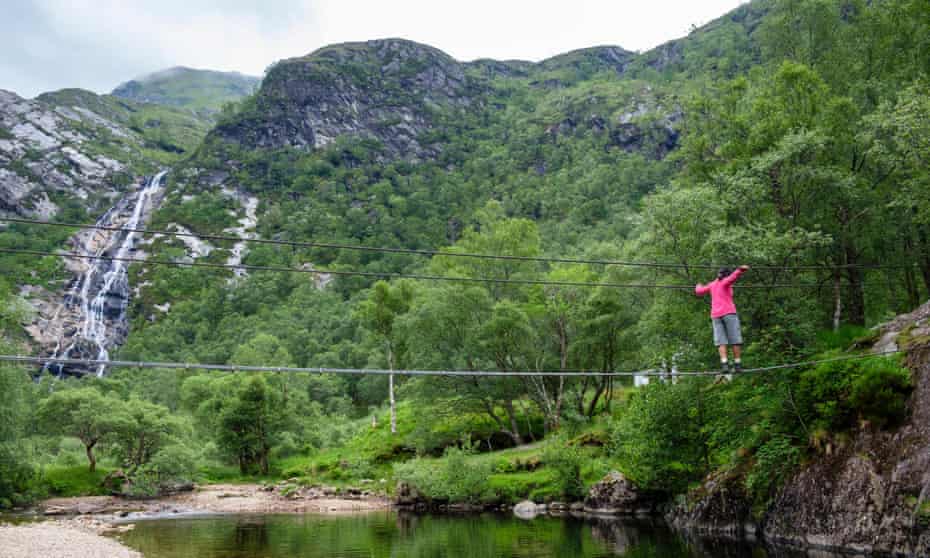
Back in Fort William, I grabbed the last free table at the Wildcat cafe in the High Street. A thick, spicy sweet potato, pumpkin and chilli soup with generous chunks of sourdough bread proved the perfect food after a bracing day out. The cafe has been here for a couple of years and has proved a hit with its uber-sustainable plant-based menu and zero-waste shop.
Just along the street stands the little West Highland Museum (free). Ian, a volunteer there, showed me its most recent acquisition – a collection of exquisite Jacobite glasses dating from the time when it was an act of treason to raise a toast to a presumptive Stuart monarch. The fragile drinking vessels had recently been discovered in a store room belonging to whisky-maker William Grant and are adorned with secret symbols used by the Jacobites to mask their leanings.
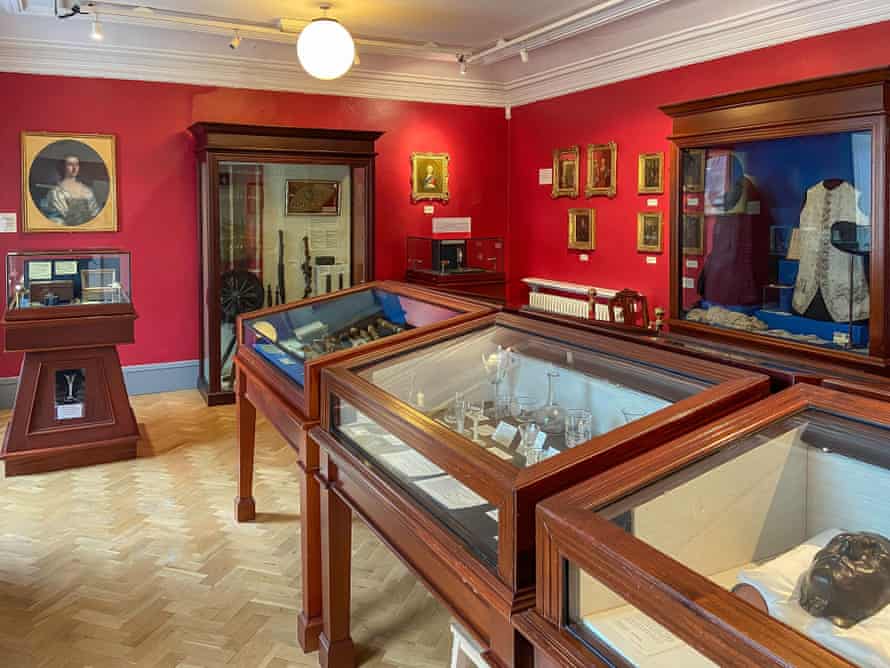
Raising a toast was a less fraught affair back at the hostel. Though it has no spirits licence, it sells bottles of wine and, true to a local-sourcing policy, Scottish cider and beer. The latter includes bottles from Glen Spean (£3.95), a new microbrewery so local that, as Paul on reception told me, “the brewer delivers it himself”.
Lying snug in bed on my final night, a measure of Scottish ale coursing through my veins, I listened to the rain battering my bedroom window. I’m always happy when bad weather happens at night – it often heralds the dawn of a glorious day.





